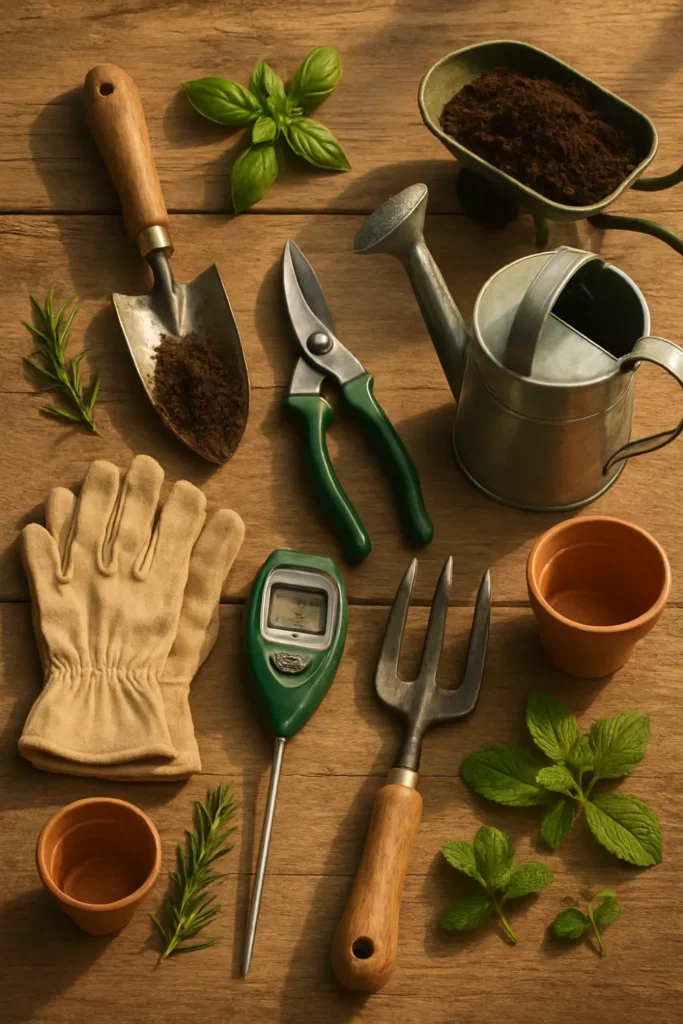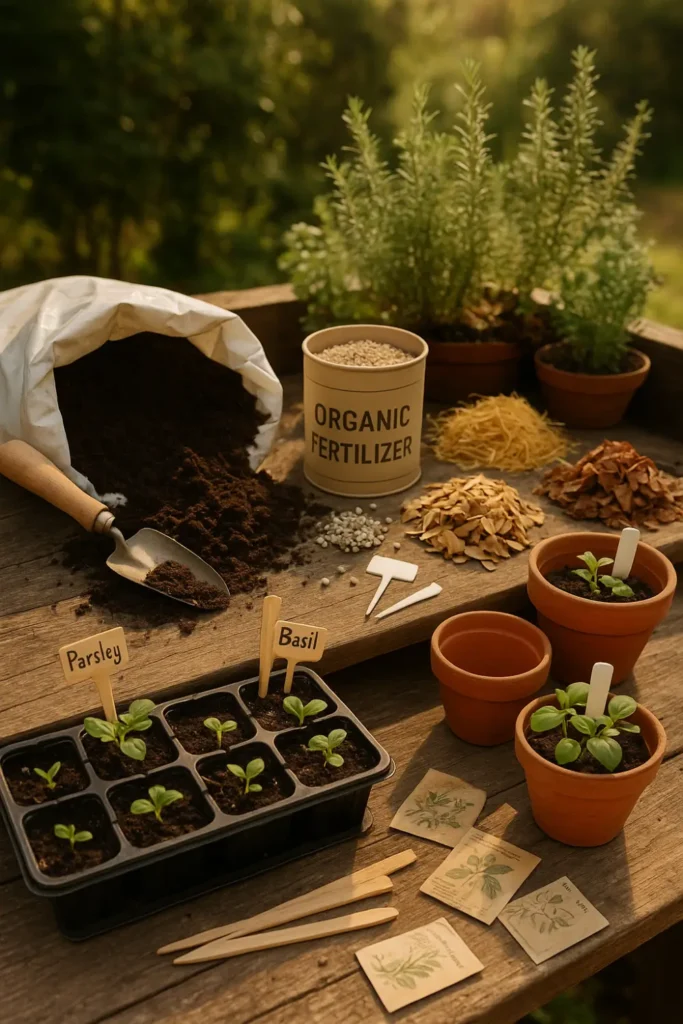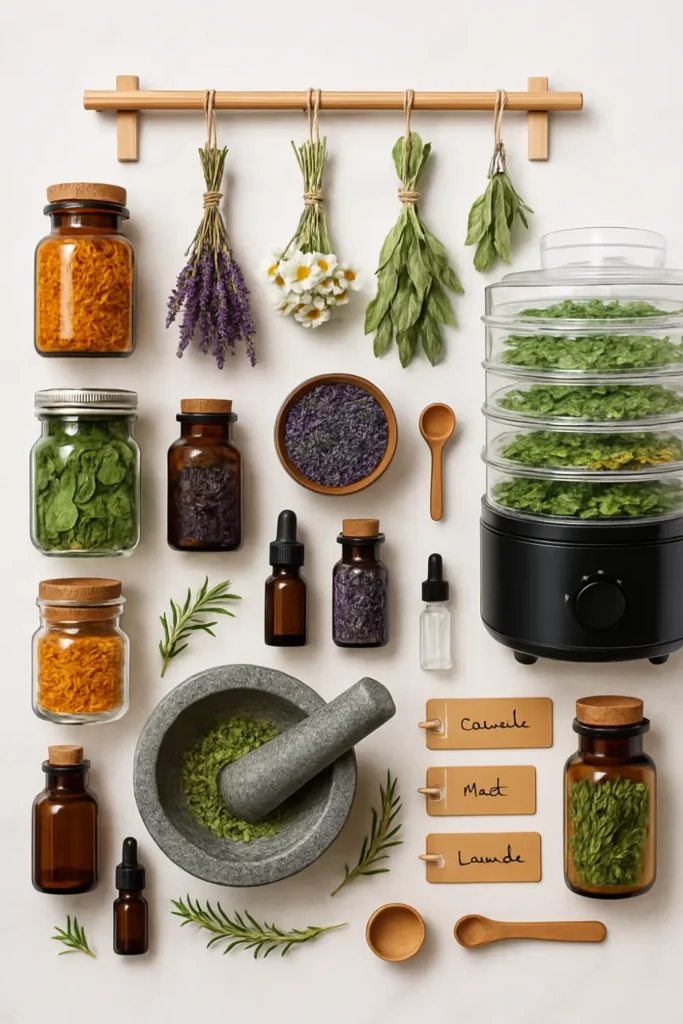Top Tools for Your Herb Garden
🌿 🛠 Essential Tools for Herb Garden Beginners
Looking for the best tools for herb garden success? Whether you’re just getting started or leveling up your setup, having the right gear can make herb gardening simple and enjoyable. From planting and pruning to watering and harvesting, these tools will help you grow a healthy, thriving herb garden right at home.
This page contains affiliate links. Read our full disclosure.
Want free 2-day delivery on your herb garden tools?
Try Amazon Prime Free for 30 Days →
1. Essential Tools for Herb Gardens

✂️ Pruning Shears (Secateurs)
For trimming and harvesting herbs without damaging the plants.
Shop on Amazon →2. Soil and Planting Supplies

🪴 High-Quality Potting Soil
Choose nutrient-rich, well-draining soil for strong root growth.
Shop Potting Soil →🧪 Organic Fertilizer
Support healthy herb growth with slow-release organic nutrients.
Shop Fertilizer →
Boost herb growth with this all-natural soil and foliar feed kit, ideal for medicinal plants.
✅ Shop Now — Use Code STACIE103. Specialized Tools for Medicinal Herbs

- Drying Rack or Dehydrator
- For drying herbs after harvest to preserve their medicinal properties.
- Glass Jars or Airtight Containers
- Store dried herbs in a cool, dark place to maintain potency.
- Mortar and Pestle or Herb Grinder
- For preparing dried herbs for teas, tinctures, or salves.
- Pruning Snips or Scissors
- For precise harvesting of leaves, flowers, or stems.
4. Optional but Helpful Tools
- Grow Lights
- If starting seeds indoors or growing herbs in low-light conditions.
- Rain Barrel
- Collect rainwater for eco-friendly watering.
- Compost Bin
- Create your own compost to enrich your soil naturally.
- Plant Supports or Trellises
- For vining or tall herbs like hops or passionflower.
- Garden Journal
- Track planting dates, growth progress, and harvest times.
5. Herb-Specific Supplies
- Seed Starting Mix
- A lightweight mix for germinating herb seeds.
- Rooting Hormone
- For propagating herbs like rosemary or lavender from cuttings.
- Essential Oil Distiller (Optional)
- If you’re interested in extracting oils from herbs like mint or lavender.
Tips for Success
- Research Your Herbs: Different medicinal herbs have unique growing requirements (e.g., sunlight, water, soil type).
- Start Small: Focus on a few easy-to-grow herbs like chamomile, lavender, peppermint, or echinacea.
- Plan Your Layout: Group herbs with similar needs together (e.g., Mediterranean herbs like rosemary and thyme prefer drier soil).
- Harvest Regularly: Pruning encourages growth and keeps plants healthy.
With these tools and a bit of dedication, you’ll be well on your way to cultivating a thriving medicinal herb garden!

